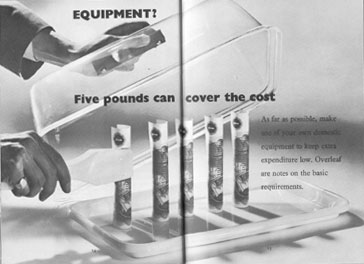This morning, someone asked me what I was laughing at. It was The Unfortunates, B.S. Johnson's novel-in-27-unbound-sections on grief and the vagaries of memory. Specifically, the bit that follows. 'Tony' is Tony Tillinghast, the friend whose death from cancer a chance visit to Nottingham has prompted B.S. Johnson to remember. The pub is one near B.S.'s flat in Angel, from which he and his friend Jack had been banned after scribbling obscenities in the 'virginal urinal', smashing the odd pint glass, and so on. A pause of three em spaces in the original is represented here by a paragraph break, because my HTML isn't all that. Anyway:
...Tony suggested going into the pub, on this occasion, it must have been the second time he came to the Angel, not the first, now I think of it, because I had worked at another pub, and I was barred from that one, too, or did not go in there, anyway, or something, but he said Let me go in first and order one for you to come in and drink, after a few minutes. And it worked perfectly, I stood outside and counted a hundred, then went in to him and took up my drink, and they were astounded, confounded, the woman and the barmaid, who were both there, it worked well, they muttered amongst themselves, or together, but there was nothing they could do about it, it was so well timed. But they would no serve us with another drink, I remember asking Why not? very aggressively, and them staring back, angrily, and saying You know why! And I think threatening to call a copper. But we left victorious despite, Tony and I, with some dignity, too, as I remember. The beauty of it was that Tony was so polite, gentlemanly and friendly in buying the drinks, had formed a relationship with them, they being very pleased at new custom in an area where it was not common, I think, and they therefore had this friendliness thrown in their faces, so to speak, but could do nothing about it. Ah, the beauty of that!
And then Tony suggested doing the same thing the next evening, only sending two friends in to set up drinks for four, and then both he and I would walk in, and after that they would surely never serve any drinks to anyone unless they saw who it was first, they would be that unsure that they were not going to see the two fat guys walk in again.
[The Unfortunates, by B.S. Johnson, London, 1969, reprint 1999. More readable and less affecting than I expected, although that may be my shallowness. It is an excellent portrait of what the mind does in a stretch of waste time -- kinships with Nicholson Baker's The Mezzanine, which again I wasn't expecting. The precise observation of Nottingham detail was a pleasure for me, although knowing the geography of his wanderings tugs against the randomness of the form.]
SILLY IDEA BONUS: Thanks to Jonathan Coe's biography of Johnson, we now have a pretty good idea of when The Unfortunates took place: Boxing Day, 1964, when The Observer assigned the author to watch Forest play Spurs. A city that took its literary heritage seriously, rather than just arranging random volumes in the shape of an N, would declare Boxing Day to be B.S. Johnson Day, on the model of Bloomsday, and have hordes of tourists buying quarters of ham from a deli near Old Market Square, drinking two marsalas in Yates's Wine Lodge, and then watching a disappointing Forest match. Of course, in the spirit of the book, you would have to let your visitors do these things in an order of their choosing, or maybe gather at the railway station and then draw lots to decide the schedule. I may write a letter to our tourist authorities, and see how politely they give me the brush-off. And I may then try and do it myself anyway.







